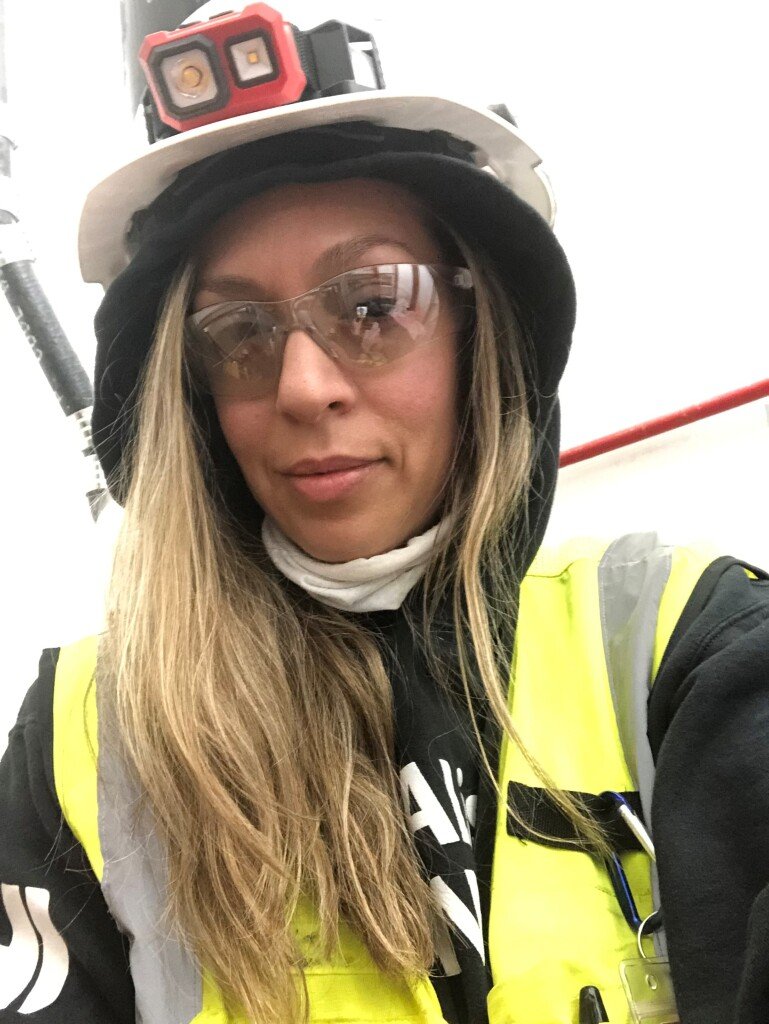Life doesn’t always go as planned, and Robin Mitchell knows this well. She started with a degree in music performance but found herself working different jobs that didn’t give her the stability or career she wanted. After facing tough financial challenges and big life changes, she decided to take a chance and join the Step Up for Women Construction program.
Robin’s story is one of strength and determination. Today, she’s a successful Fire Alarm Manager with top certifications and a career she loves. In this interview, Robin talks about her journey, the challenges she faced, and her advice for other women who want to work in the trades.
Her story shows that it’s never too late to change your life. Keep reading to learn how Robin built her career from the ground up.
What were you doing before you joined WV Women Work’s Step Up For Women Construction class?
I earned a bachelor’s degree in music performance and didn’t do anything with it because I realized I wasn’t going to make any money. I tried a variety of different jobs, and they were all just jobs, not careers.
In 2005, I was working as a realtor, and that was the first job I had that seemed like a potential career. Sadly, the housing market hit a downturn around that time. By 2008, things were so bad that I found myself facing foreclosure and bankruptcy. I barely survived it, and I found myself in a position where I was basically paying to work.
How did you find out about the Step Up construction class?
During the 2007-2008 economic downturn, I was really depressed and didn’t want to leave my house. I was searching for something better, anything, a way out. I kept seeing this ad in a local paper called The Valley Trader about a Step Up program that helps women get jobs in construction. Eventually, I decided to call. Luckily, I was accepted.
What struggles did you face while completing the Step Up program?
It was tough to make ends meet, and at one point I was working five part-time jobs while taking the Step Up classes. I worked for a cleaning company making minimum wage because I couldn’t get anything full-time, and I also did some punch-out work for a lady who owned a construction company. I was even bartending on the weekends and still trying to sell real estate. Oh, and I had a few candy machines at local shops. It was insane. However, the struggle was worth it because through that program I was introduced to different opportunities and discovered what avenue I wanted to take.
Another challenge was my husband at the time who discouraged me. He said, “Don’t do construction. You don’t understand how the guys talk. You’re going to hate it.” However, I loved the work and within a year I was making more money than him! He didn’t like that very much. Needless to say, we’re not together anymore.
What motivated you to specialize in fire alarm work? How would you describe your current role?
I asked myself how much money I needed just to survive. That’s when I started looking at asbestos abatement work, but it had a much lower pay top-out than electrical work. A HAZMAT clean-up company wanted to hire me, but I was still waiting to get a letter of acceptance for an electrical apprenticeship. At the time, the apprenticeship started at $15.00 an hour, and I knew I could survive on that, so that’s how I got into the Local 26 electrical apprenticeship.
I put five years into my apprenticeship and received regular pay raises every year. Eventually, work slowed down, and in the fifth year of my apprenticeship, I took a gamble on a new company in the area called Rosendin Electric. That is where I landed a position doing fire alarm work which is what I really wanted to do. I love how technical and challenging that niche is.
I’ve earned multiple certifications after taking the position and just received my Nicet Level IV which is the highest Fire Alarm Systems certification. I became a foreman with them in 2014 and started overseeing multiple projects about four or five years ago. Today my official title is Fire Alarm Manager which is a mix of superintendent, project manager, and technician all-in-one, and I also work on secure sites managing fire alarm work. Much of my work is ensuring the drawings from our vendors will pass inspection to overseeing the pre-testing phase of the project. I also have the privilege of training the fire alarm foreman on the site. In general, I just make sure the job gets done.
What steps would another woman take to get this same job?
First, become a licensed electrician and then train in fire alarm systems. Apprenticeships are an excellent pathway to start, and the IBEW Union apprenticeship program through the JATC (Journeyman Apprenticeship Training Center) is preferred as they will pay you to go to school!
New construction projects usually require a NICET-certified technician in fire alarm systems to oversee the install. This drives companies to keep people like me employed because they’re required to have a certified technician just to bid the project.
How did Step Up prepare you for this role?
Before those classes, I was bartending and partying late into the night. However, I had to be in class five days a week at 7:00 am, which was very early for me. I was in such dire need for a change and wanted to prove to myself that I could show up early, and I knew if I could show up for class on time, then I could handle being early for a job. Now, I wake up at 4:00 am to start work by 6:00 am.
Also, it was great being in a room with all women learning construction and working together on a project. We had hands-on welding experience which was cool, but I really liked the electrical training which inspired me to go in that direction.
Where has your work taken you?
I’m on a site in Manassas, VA right now working on a data center, and I’m working on two other projects in the Ashburn area. Then, I have some secure site work for a government facility, and I’m supposed to start another project here in Leesburg.
I’m in a sweet spot because I get to decide which site I want to visit that day. I’m in management now, so I’m at a computer more than I ever thought I would be, but I also get more freedom over my schedule.
What advice would you give another woman who wants to work in the trades?
There is an outdated attitude that construction is not open to women, and while that may be true in some avenues, I feel my fellow electricians are happy to work alongside women. I’ve only run into issues a handful of times which is insignificant considering the number of years I’ve spent in this trade.
Also, the hardest thing for an employer to find is people that will show up on time every day and focus on their job. Just show up on time every day and try! Come with a willingness to learn. That’s all it takes to gain respect.
Another thing to know is size and physical strength will not hold you back in this field. One exception would be jobs in Big Power which can be physically demanding because it requires pulling feeder cables and running larger conduit. However, there’s so much you can do that most people’s bodies can easily handle. There’s a wide spectrum of specializations like Controls, Low Voltage, Fire Alarm, and more.
What surprised you most about working in the field?
I didn’t realize how many hours would be available to work. Also, I thought I’d have to prove myself more to my coworkers, and I think it’s a common feeling for women in the trades. I grew up doing a lot of physical work with my dad who really pushed me, so I had the mindset that I need to work harder and faster than everybody else to be respected. I think that was a benefit to me. I now know I’ve gained respect in my trade and don’t have to work from a place where I feel I have something to prove.
Is there anything else you’d like to share with our readers?
I really appreciated the experience I gained from Step Up. I was stuck in a personal low when I applied, so getting in the program was the one thing going right. It gave me a little ray of hope that made me believe I could get out of the hole I was in.
If not for Step Up, I would still be in that bad marriage and probably would have stayed as long as I was only able to earn minimum wage. I might still be at the food bank to get by, renting the cheapest place I could find, and duct-taping my car back together—no joke. There’s a lot of women out there who are stuck in bad situations because they can’t find employment that pays well enough for them to be independent.
Also, I’ve had two kids since starting in this trade, and I was able to pay a sitter watch my kids as early as 4:30 in the morning which I wouldn’t have been able to afford without my career as an electrician.
The most important thing to know is that it takes a lot of courage to make a change, but the risk is always worth it.
Interview conducted, transcribed, and written by Marlynda Arnett, Program Innovation Leader for West Virginia Women Work.

